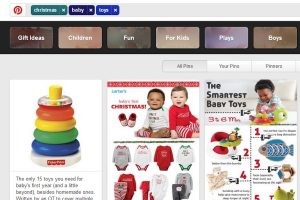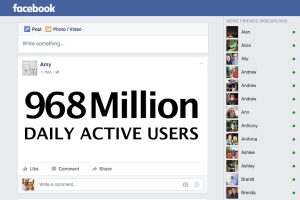
LinkedIn Company Pages and University Pages are merging into one page.


LinkedIn Company Pages and University Pages are merging into one page.

With people relying on mobile more than ever – over half of the trillions of Google searches happen on mobile – Google recently announced changes to favor the mobile experience. Google is calling this the biggest change since AdWords launched 15 years ago, and in my 10+ years experience working in the platform, I would agree! […]

A report from Syncapse states that the average value of a Facebook fan is $174. How is your social media campaign stacking up?

Pinterest promoted pins are another great way to get exposure for your website, products and business — a dream come true for b2b marketing!

A smart way for higher ed marketers to reach prospects on Facebook is to target by demographic. Are you using this paid marketing medium to its full potential?

You want to be sure you are getting the most out of your retargeting campaigns, and most importantly, your repeat visitors. Be sure to avoid these 3 retargeting mistakes…

There have been lots of articles and speculation over the last few months about the teen audience leaving Facebook. This could be a major concern if you are using Facebook paid advertising to target teens, but should you be really concerned? How many teens have left? iStrategy Labs reports a 25.3% decline in teens using […]

Google recently shared an infographic depicting how 2013 transformed digital marketing. There are some great stats in here… 73% of advertisers report using social media ads 239% YOY increase in mobile queries across the Google Display Network See the full infographic: http://think.storage.googleapis.com/docs/redefining-advertising_infographics.pdf If you are seeking a paid advertising agency, consider partnering with us.

Facebook announced on Tuesday morning that it’s testing such ads in the News Feed with a handful of advertisers. USA Today is calling this “…a move that takes aim at massive spending budgets for television ads.” Rather than having to click or tap to play, videos will begin to play as they appear onscreen – […]

When it comes to a paid search (PPC) campaign, it’s not just important to make sure that your ads are seen. It’s important to make sure that they’re seen by the right people. Your goal is to ensure that the people who see and click on your ads are likely to connect with you and […]